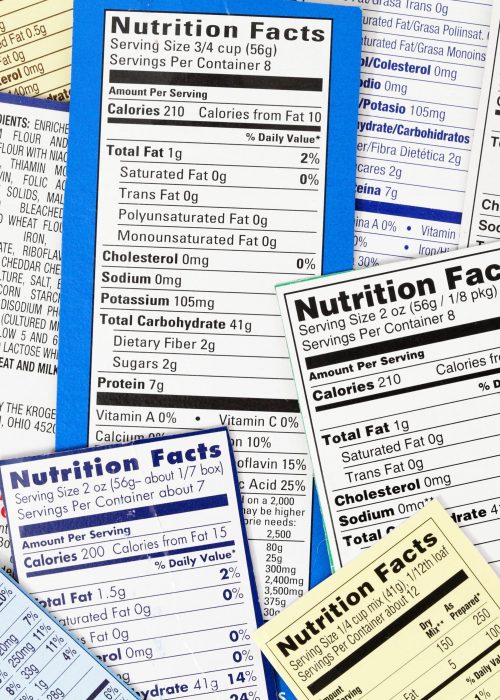Articles on Polyols
Learning to live a healthier lifestyle is easy when you change one small thing at a time. Learn and find tips to start the change today!
Learn moreErythritol is a zero-calorie, good-tasting bulk sweetener which is suitable for a variety of reduced-calorie and sugar-free food and beverages. It has been part of the human diet for thousands of years due to its presence in fruits and other foods. Erythritol has a high digestive tolerance, is nonglycemic and therefore safe for people with diabetes, and does not promote tooth decay.

Erythritol, a polyol (sugar alcohol), occurs naturally in fruits such as pears, melons and grapes, as well as foods such as mushrooms and fermentation-derived foods such as wine, soy sauce and cheese. Erythritol is a white crystalline powder with a clean sweet taste that is similar to sucrose. It is approximately 70% as sweet as sucrose and flows easily due to its non-hygroscopic character.
Erythritol’s caloric value of zero calories per gram and high digestive tolerance distinguishes it from other polyols. Because erythritol is rapidly absorbed in the small intestine and rapidly eliminated by the body within 24 hours, laxative side effects sometimes associated with excessive polyol consumption are unlikely when consuming erythritol containing foods.
Since 1990, erythritol has been commercially produced and added to foods and beverages to provide sweetness, as well as enhance their taste and texture.
Zero calorie: Erythritol has 0 calories per gram for food labeling purposes in the United States, Europe and Japan. This 0 calorie value is based on erythritol’s unique absorption and elimination process which does not involve the metabolism of erythritol. Thus, erythritol is uniquely qualified as a zero calorie bulk sweetener for formulating “reduced calorie” and “light” products which require a 25 percent or more calorie reduction from the standard formulation.
High digestive tolerance: Erythritol is rapidly absorbed in the small intestine and studies have shown that erythritol is not fermented by the human body. As a result, foods containing substantial amounts of erythritol are very unlikely to cause gaseous and laxation side effects. A recent clinical study concluded daily consumption of 1 gram per kilogram body weight of erythritol in various foods and beverages over the course of a day is well tolerated by adults as compared to sucrose containing foods.
Safe for people with diabetes: Single dose and 14-day clinical studies demonstrate erythritol does not affect blood serum glucose or insulin levels. Clinical studies conducted in people with diabetes conclude that erythritol may be safely used to replace sucrose in foods formulated specifically for people with diabetes. Of course, those with diabetes should consider the impact on their diet of other ingredients used in foods sweetened with erythritol.
Does not cause tooth decay: Erythritol like other polyols is tooth friendly and resistant to metabolism by oral bacteria which break down sugars and starches to produce acids which may lead to tooth enamel loss and cavities formation. They are, therefore, non-cariogenic. The usefulness of polyols, including erythritol, as alternatives to sugars and as part of a comprehensive program including proper dental hygiene has been recognized by scientists and regulatory authorities.
The safety of erythritol as a food ingredient under conditions of its intended use is substantiated by a number of human and animal safety studies, including short and long term feeding, multi-generation reproduction and teratology studies. The WHO/FAO Joint Expert Committee on Food Additives (JECFA) reviewed the safety of erythritol in 1999 and established an ADI of “not specified,” the highest safety category possible.
Erythritol has been used in Japan since 1990 in candies, chocolates, soft drinks, chewing gums, yogurts, fillings, cookie coatings, jellies, jams and sugar substitutes. Petitions have been submitted to additional governmental agencies throughout the world to expand the use of erythritol. It has already been approved for use in foods in more than 50 countries, including Canada, US, Brazil, Mexico, Australia, and the European Union.
Erythritol blends well with other polyols and flavors and can mask off-flavors such as bitterness sometimes associated with other low-calorie sweeteners. Erythritol is synergistic with low-calorie sweeteners such as aspartame, acesulfame potassium and stevia sweeteners, resulting in a sweetener combination which is sweeter than the sum of the individual components and with an improved taste profile with superior taste, economic and stability advantages.

Sugar replacers (polyols) have been used in foods around the world for many years. An Expert Committee of the World Health Organization has carefully reviewed them and concluded that they are safe for human consumption. In the U.S., the Food and Drug Administration (FDA) classifies some as Generally Recognized as Safe (GRAS) and others are approved food additives.
Learning to live a healthier lifestyle is easy when you change one small thing at a time. Learn and find tips to start the change today!
Learn moreWe’ve got the answers to your frequently asked questions about polyols.
Learn moreThese unique sweeteners taste like sugar but have special advantages.
Learn more